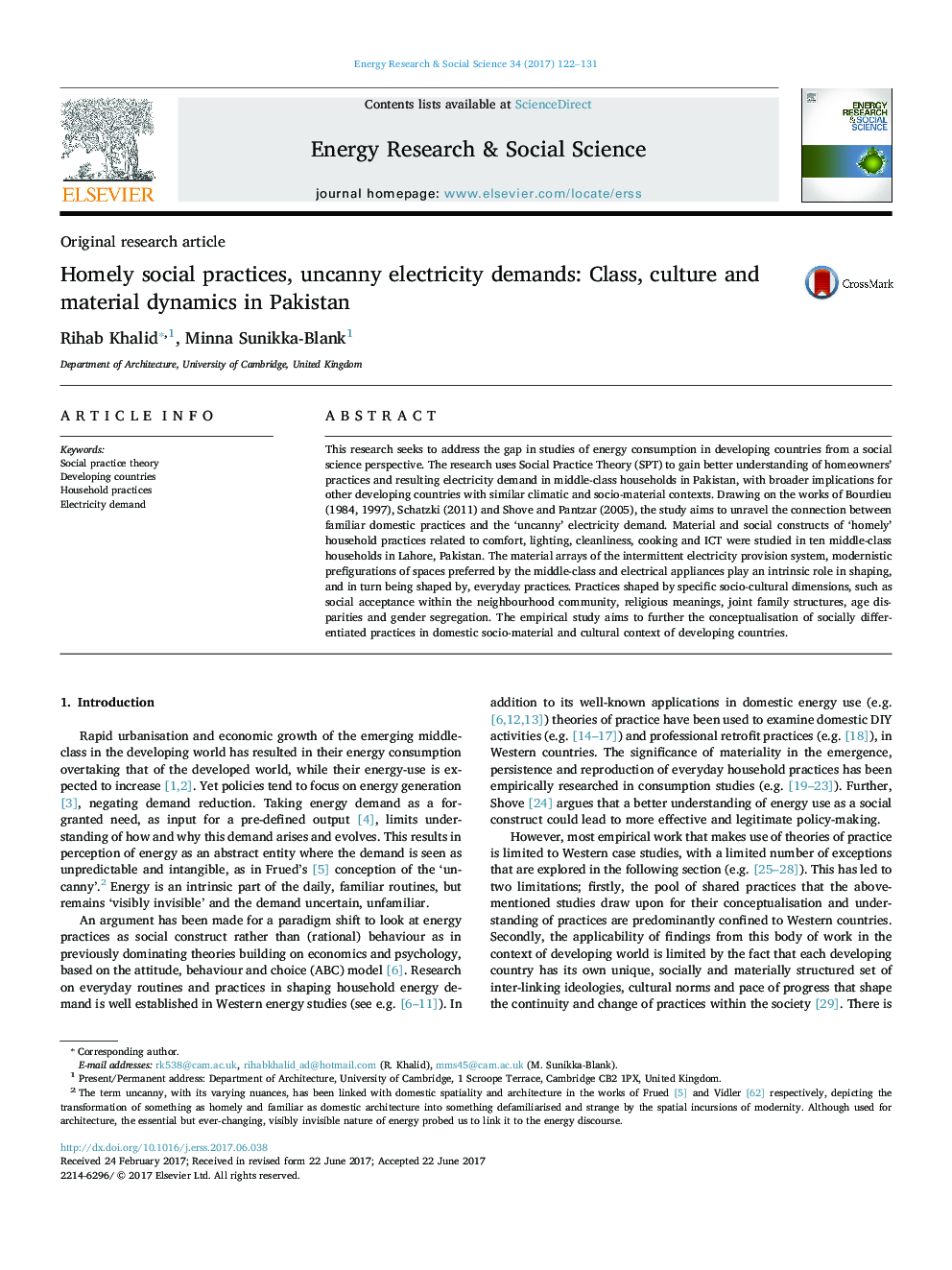| کد مقاله | کد نشریه | سال انتشار | مقاله انگلیسی | نسخه تمام متن |
|---|---|---|---|---|
| 6463759 | 1422567 | 2017 | 10 صفحه PDF | دانلود رایگان |
This research seeks to address the gap in studies of energy consumption in developing countries from a social science perspective. The research uses Social Practice Theory (SPT) to gain better understanding of homeowners' practices and resulting electricity demand in middle-class households in Pakistan, with broader implications for other developing countries with similar climatic and socio-material contexts. Drawing on the works of Bourdieu (1984, 1997), Schatzki (2011) and Shove and Pantzar (2005), the study aims to unravel the connection between familiar domestic practices and the 'uncanny' electricity demand. Material and social constructs of 'homely' household practices related to comfort, lighting, cleanliness, cooking and ICT were studied in ten middle-class households in Lahore, Pakistan. The material arrays of the intermittent electricity provision system, modernistic prefigurations of spaces preferred by the middle-class and electrical appliances play an intrinsic role in shaping, and in turn being shaped by, everyday practices. Practices shaped by specific socio-cultural dimensions, such as social acceptance within the neighbourhood community, religious meanings, joint family structures, age disparities and gender segregation. The empirical study aims to further the conceptualisation of socially differentiated practices in domestic socio-material and cultural context of developing countries.
Journal: Energy Research & Social Science - Volume 34, December 2017, Pages 122-131
